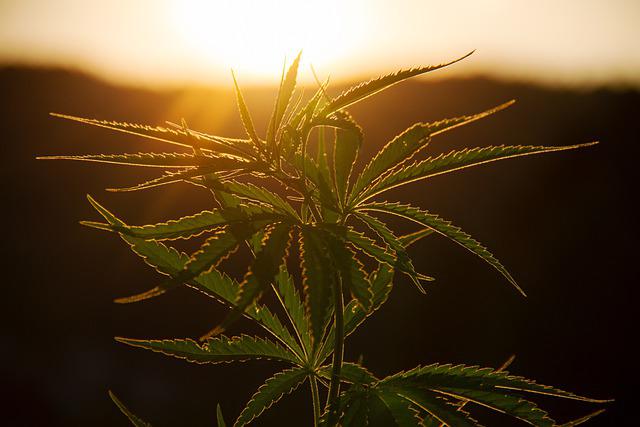Cannabis
The Impact of Home-Grown Cannabis On the Brazilian Cannabis Industry
In Brazil, producing small quantities of home-grown cannabis is authorized. But how big is its impacts on the commercial cannabis industry? Probably not as big as you’d think. Indeed, even if home-grown cannabis is authorized, many people simply simply don’t want to bother with it. After all, what percentage of the population grows its own vegetables at home, even if it is entirely legal?

This week, another association in Brazil managed to win in court the right to plant, produce, and supply products made with home-grown cannabis to its members.
At first glance, it may seem that the release of individual home cultivation or through entities may generate competition for the industry, but this is not true.
To learn more about the cannabis industry, along with the latest in stocks, markets, and other business news, be sure to download our free financial news app.
Industry Is Still Building New Markets
Associations in Brazil are building new markets and are therefore still a long way from a scenario of competition among participants. All players still need to walk together, promoting quality information and bringing more doctors and patients to the discussion. The more people that have access to and guarantee the right to use cannabis and its products, whether home-grown cannabis or industrial, the greater the chances of this market succeeding.
Not Everyone Wants Home-Grown Cannabis
Not all people have skills to produce home-grown cannabis. And plenty more just don’t have the time, money or desire. Therefore, demand exists both ways, and the market will only be complete when the needs of patients are met.
And the industry knows this process well. In recent years, we are witnessing the emergence of a variety of products that aim to satisfy not only different consumer profiles and different goals, but also different consumption occasions. However, the industry is still focused on innovating the format of products and their compositions, and little has been said about reaching consumers who want to produce home-grown cannabis.
Both Commercial and Home-grown Cannabis Lacking Decent Regulation
There is still a lack of regulation in Brazil for home-grown cannabis to be widely publicized. But the industry already has numerous patients and associations with lawsuits, which shows the demand for this option.
Partnering with such groups, teaching extraction and cultivation techniques, providing better equipment, or collaborating on products and inputs are just some ways companies can improve and develop the entire ecosystem.
It is not new that industries from all sectors are required to take actions and participate more actively in the communities in which they operate. With the cannabis industry, it will be no different.
Consumers More Aware of Impacts
Consumers are increasingly aware of the impact that brands leave, and the quality of service and products offered by companies is no longer enough. While this will inevitably push some towards home-grown cannabis, others will apply more pressure on industry.
There is so much talk about ESG in the cannabis market. After all, the industry works with a very sustainable raw material from an environmental point of view, but industry cannot forget that market must also be concerned with social and governance aspects.
Improving the quality of home-grown cannabis products, making the industry more inclusive, and being an agent of positive change in the world is everyone’s duty.
__
(Featured image by NickyPe via Pixabay)
DISCLAIMER: This article was written by a third party contributor and does not reflect the opinion of Born2Invest, its management, staff or its associates. Please review our disclaimer for more information.
This article may include forward-looking statements. These forward-looking statements generally are identified by the words “believe,” “project,” “estimate,” “become,” “plan,” “will,” and similar expressions. These forward-looking statements involve known and unknown risks as well as uncertainties, including those discussed in the following cautionary statements and elsewhere in this article and on this site. Although the Company may believe that its expectations are based on reasonable assumptions, the actual results that the Company may achieve may differ materially from any forward-looking statements, which reflect the opinions of the management of the Company only as of the date hereof. Additionally, please make sure to read these important disclosures.
First published in Sechat, a third-party contributor translated and adapted the article from the original. In case of discrepancy, the original will prevail.
Although we made reasonable efforts to provide accurate translations, some parts may be incorrect. Born2Invest assumes no responsibility for errors, omissions or ambiguities in the translations provided on this website. Any person or entity relying on translated content does so at their own risk. Born2Invest is not responsible for losses caused by such reliance on the accuracy or reliability of translated information. If you wish to report an error or inaccuracy in the translation, we encourage you to contact us.

-

 Business2 weeks ago
Business2 weeks agoTopRanked.io Weekly Affiliate Digest: What’s Hot in Affiliate Marketing [Best Technology Affiliate Programs]
-

 Business1 week ago
Business1 week ago2.5 Billion People Watch Quiz Shows Every Day. Masters of Trivia (MOT) Is Letting Them Compete
-

 Crypto2 weeks ago
Crypto2 weeks agoBitcoin Steady Near $68K as ETF Outflows and Institutional Moves Shape Crypto Markets
-

 Crypto3 days ago
Crypto3 days agoMiddle East Tensions Shake Crypto as Bitcoin and Ethereum Slip

























